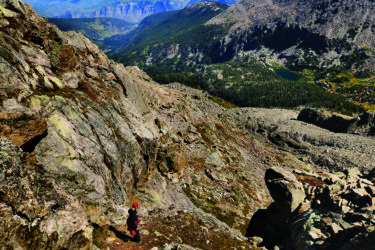The Local newsletter is your free, daily guide to life in Colorado. For locals, by locals.
The Arkansas River is the lifeblood of the Upper Arkansas economy, and FIBArk (whose initials stand for “First in Boating on the Arkansas”) is a microcosm of COVID-19 reality. Patrick Payne, president of FIBArk, uses a single word to describe the impact of cancellation of the historic FIBArk Whitewater Festival, due to the novel coronavirus.
“Huge,” he says. “Everyone who lives here knows the value of that river to this valley. We have mountain biking, mountain climbing, and snow skiing—but the river is what this valley is built upon. The economic impact was immediate.”

His day has already been filled with video conference calls, revised budget numbers, and calls with the suppliers who would normally be finalizing contracts with this 501(c)(3). The mid-June, 71-year-old festival is the biggest event of the year in Salida; it takes the town (population: 5,000) to 25,000, including visitors to Chaffee County from across the U.S. and internationally.
Payne’s economic pain isn’t just his role leading a $100,000 four-day festival with a multi-million dollar impact on Salida. He’s also the operations manager of the iconic riverfront Boathouse Cantina next door to the FIBArk boat launch (the center of FIBArk activities) and the just-opened, nearby Manhattan Hotel. Both closed immediately upon Chaffee County local public health orders.
“We’re down to a few kitchen staff at the Boathouse, doing takeout orders,” Payne says. “In fact, technically I’m unemployed at this moment, and Ray Kitson, the owner of Boathouse, is doing the deliveries to the community himself.”
Important as it is to Salida, FIBArk is only a single aspect of the river’s impact on the Upper Arkansas Valley. The Arkansas River Outfitters Association represents 95 percent of the state’s commercial river-rafting business. It estimated a $75 million economic impact on mountain counties, including thousands of jobs and festivals up and down the river; all are in question due to COVID-19.
“The hardest thing was the painful decision to cancel FIBArk—the first time in 71 years,” Payne says. “We thought about how could we do it as a smaller festival later this summer—without the carnival and the music, the merchandise and food vendors. But then of course, June is high water flow, and in August the river is low. We made the unanimous decision as a board; it was easy to do what we had to do for public safety.”
Payne is thoughtful about what has been learned. “Our board did its due diligence with the info we had, which wasn’t much,” he says. “This impact could be a couple weeks or a couple months. I bet I could find a lot of things I’d do differently come August.”
—Jan Wondra / Ark Valley Voice
This story is powered by COLab, the Colorado News Collaborative. 5280 joined this historic collaboration with more than 20 other newsrooms across Colorado to better serve the public.








